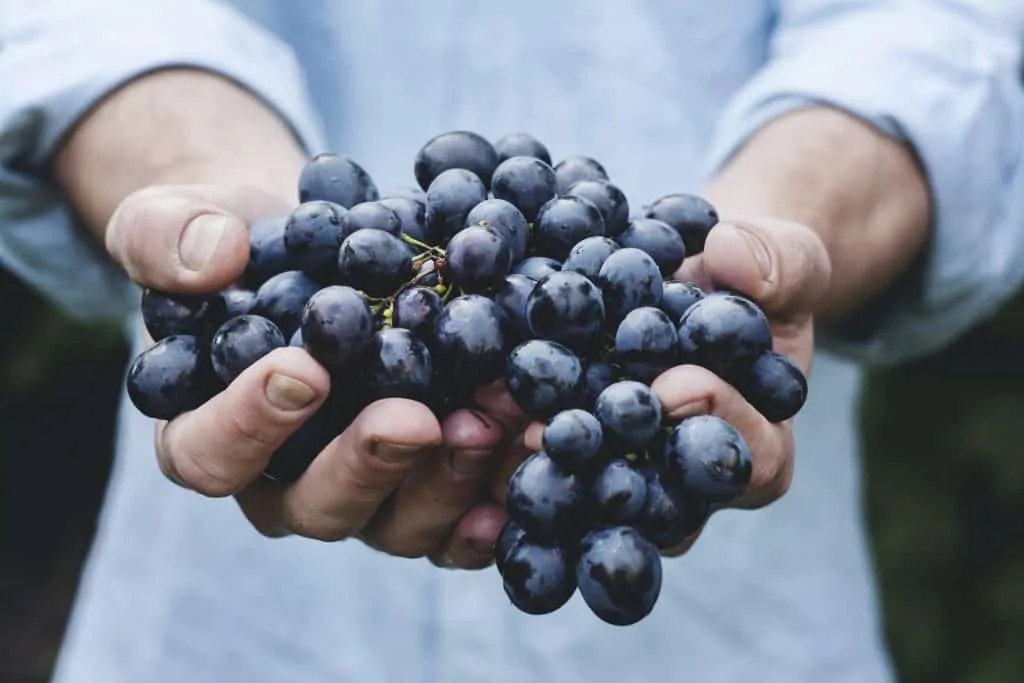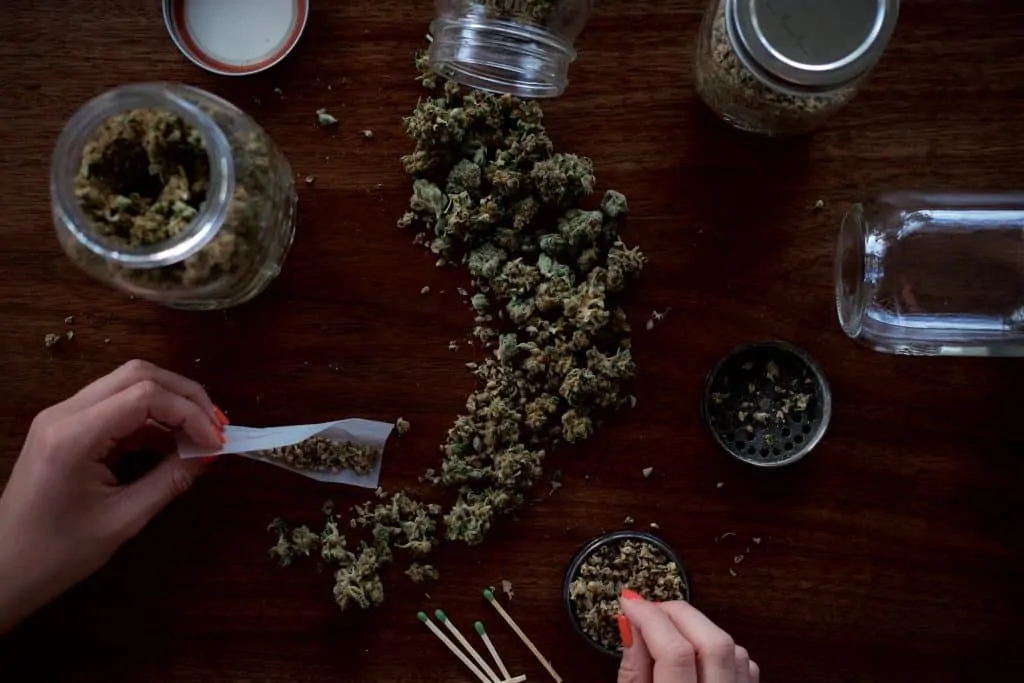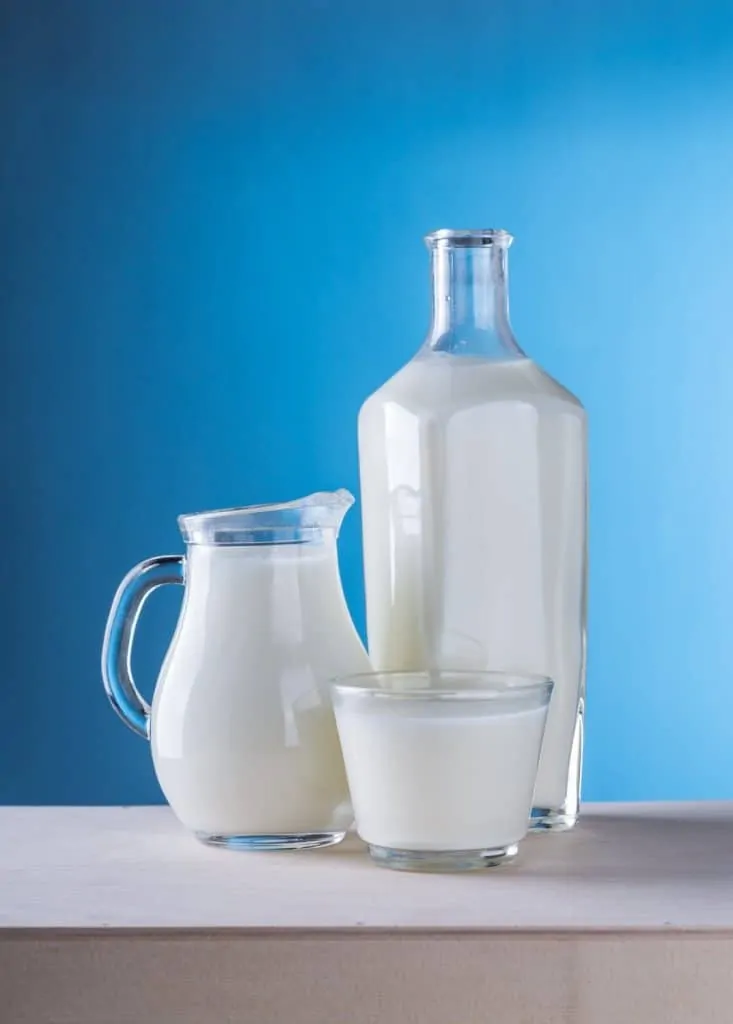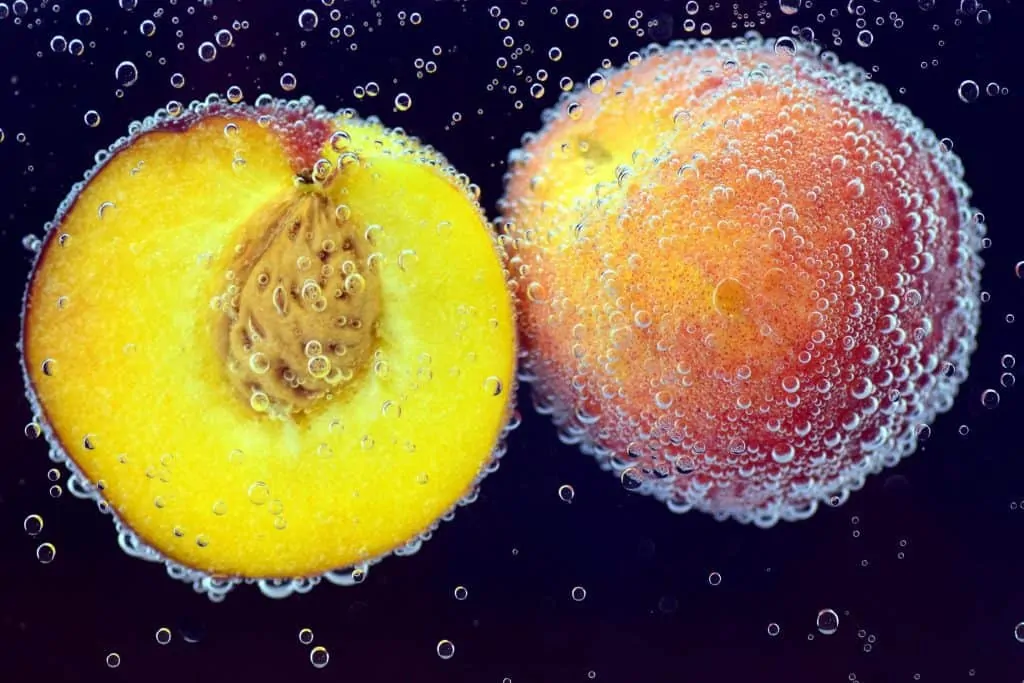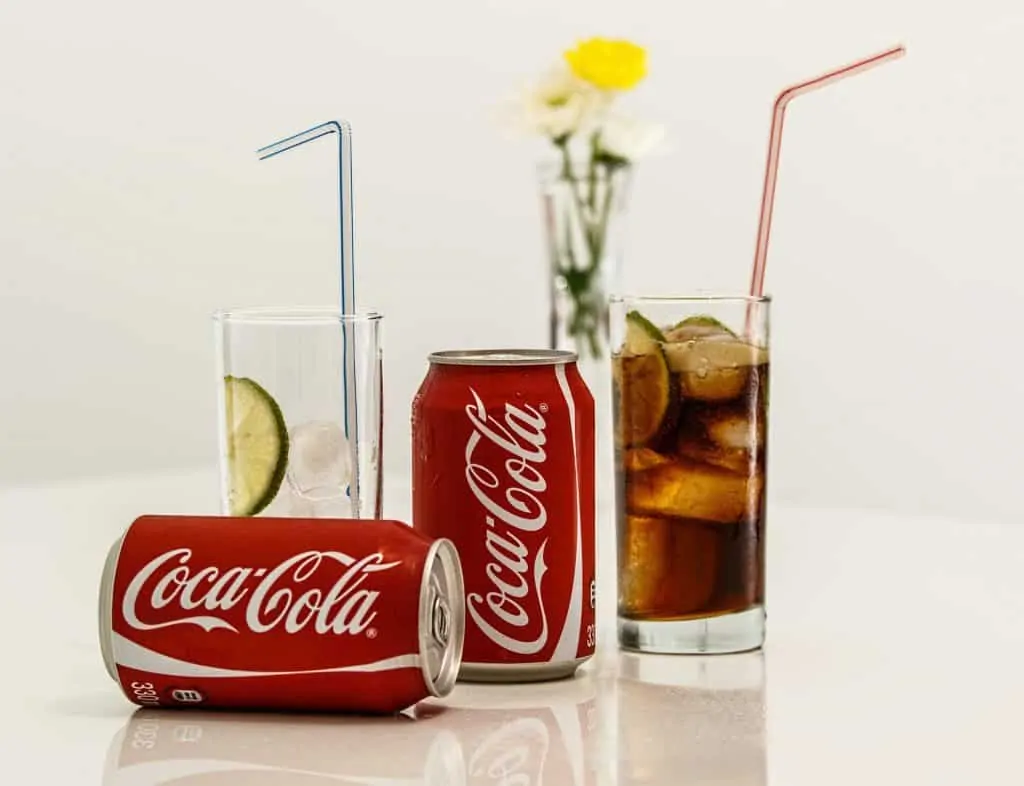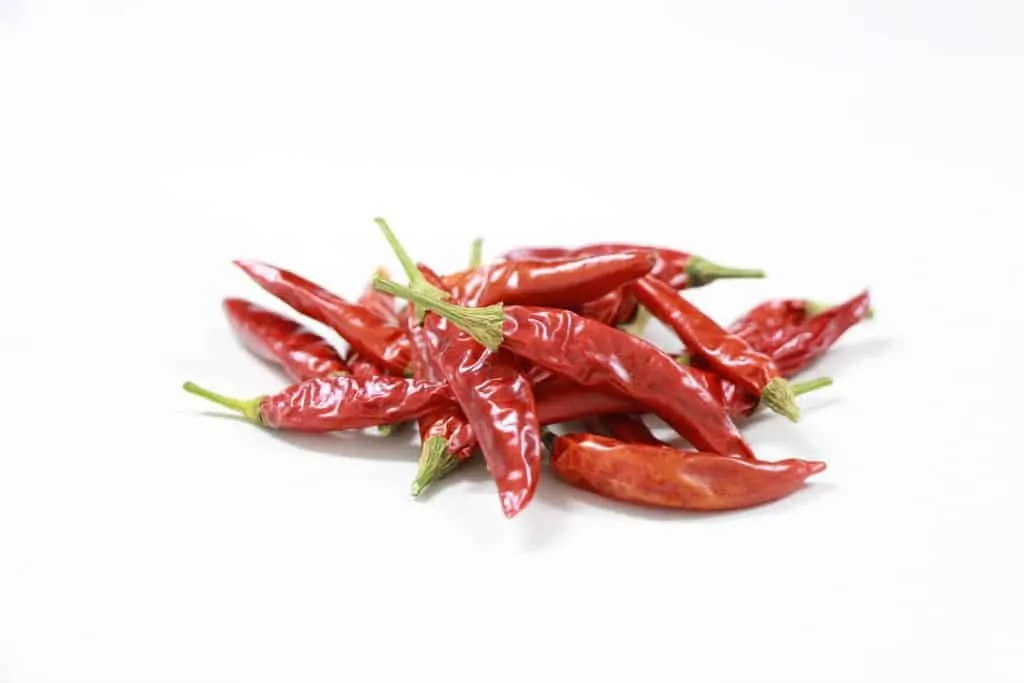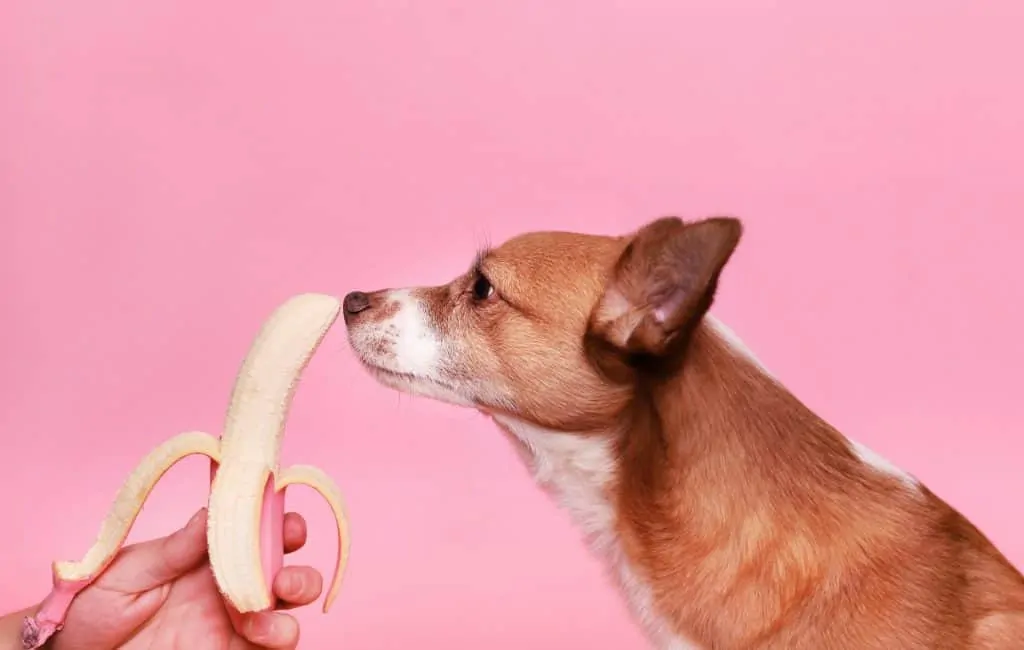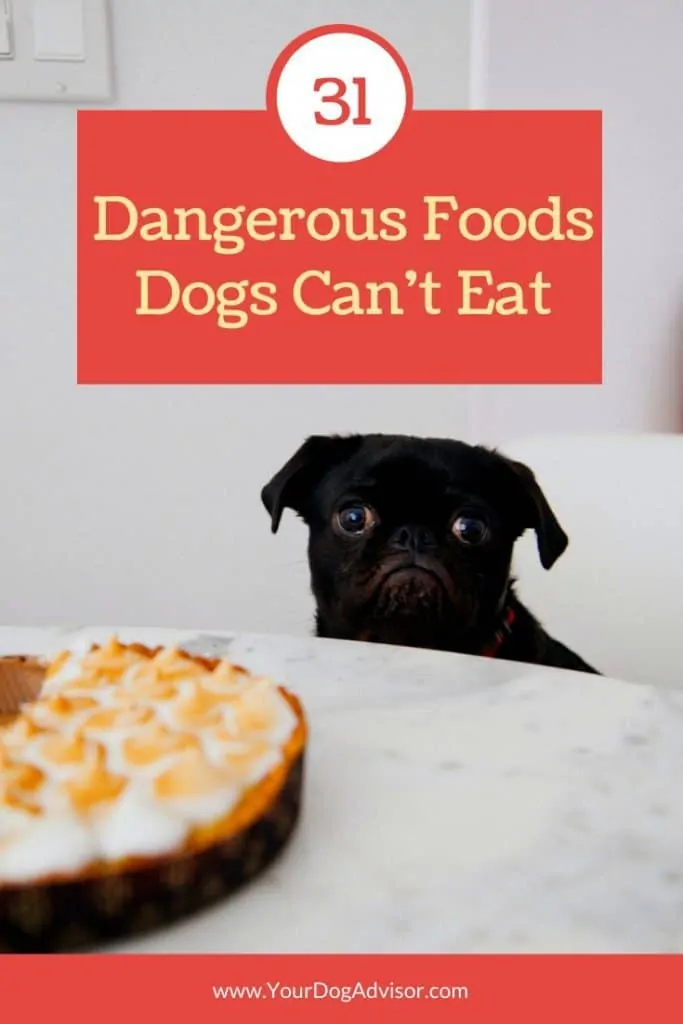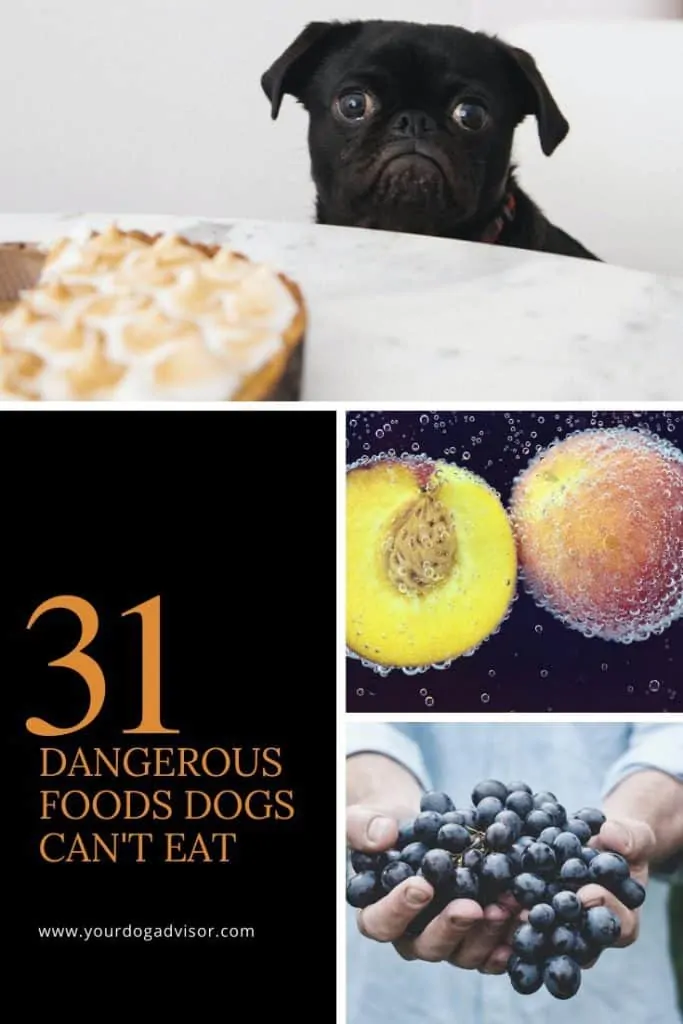Wondering what foods are safe for your furry friend? Our article identifies 31 common foods dogs can’t eat, ensuring you’re informed about potential hazards. From everyday fruits to festive treats, learn about the foods to avoid and how they affect your pet’s health. Keep your dog safe and healthy with our guide.
It’s hard to resist those puppy eyes when you’re chewing on a piece of chicken or scooping bits of eggs and toast into your mouth. Should you give your dog the leftovers on your plate, or is he better off sticking with his own dry dog food?
We all know there are some foods dogs can’t eat, but it’s tempting to want to share our human goodies with those fur babies we love so much. Dogs are family, after all, and it’s normal to want to treat them like family in every aspect.
But at the end of the day, dogs are not human, and they have different digestive systems, dietary needs and sensitivities we as their human parents need to be aware of. That said, there’s nothing wrong with wanting to share some goodies with your pup.
But before you scoop food from your plate into your dog’s dish, you should know there is a long list of common human foods dogs can’t eat, some of which may surprise you.
Contents
Foods Dogs Can’t Eat – Symptoms Of Poisoning In Dogs You Should Not Ignore
Dogs can get seriously sick from some of the listed foods and require medical attention.
If your dog ingested one of the foods dogs can’t eat above, watch for serious symptoms and take your dog to the vet immediately if you notice:
- Excessive Vomiting
- Excessive Diarrhea
- Seizures
- Bloody Urine or Stool
- Lethargy
- Irregular Heartbeat
- Inability to Go to the Bathroom
- Difficulty Breathing or Anaphylaxis
- Agitation
- Obvious Signs of Pain
- And Collapse
If you cannot reach your vet or local emergency clinic, or if you have questions or concerns that need to be dressed immediately, there are centers open and ready to help 24 hours a day 7 days a week. They include:
The ASPCA Animal Poison Control Center
1-888-426-4435
Or
The Pet Poison Helpline
1-855-764-7661
Please note that a consultation fee or emergency fee may apply to the above hotlines and your pet’s medical history may be needed.
Now, without further ado, let’s talk about foods dogs can’t eat in more detail. Keep reading.
1. Xylitol
Xylitol is incredibly dangerous for dogs, which is why it’s number one on our list of foods dogs can’t eat. Marketed as a healthier substitute for sugar, xylitol is often found in sugar free candies, toothpastes, baked goods, chewing gums and more.
It is perfectly safe for human ingestion, but very harmful to dogs. Even in small amounts, xylitol can cause a severe reduction in blood sugar levels, leading to muscle weakness, lack of coordination, lethargy, seizures, vomiting and more. In severe cases, xylitol poisoning can be responsible for liver damage, collapse, and even death.
2. Alcohol
Dogs shouldn’t consume alcohol for obvious reasons. Of course, most of us might assume that dogs would avoid alcohol on their own due to its bitter taste and strong smell. However, some alcoholic beverages are very sweet, and there are even some household products that contain alcohol that curious dogs might get into like mouthwash or nail polish remover.
While alcohol is certainly one of the foods dogs can’t eat, the good news is that the amount of alcohol consumed by your dog determines the danger your dog may be in. If you think your dog has consumed alcohol, watch for symptoms of alcohol poisoning including vomiting, excessive thirst, lethargy, disorientation, shivering, and incoordination. If you notice any of these symptoms in your dog, contact your veterinarian immediately.
3. Avocado
Avocados are a superfood for humans, but for dogs this fatty fruit can lead to serious digestive issues. The high fat content of avocados can cause nausea, vomiting, diarrhea, gastrointestinal upset, and even more serious issues like pancreatitis and myocardial damage.
4. Grapes and Raisins
Grapes and raisins are highly toxic to dogs.
There isn’t a whole lot of information on why grapes and raisins are bad for dogs, but we certainly know they are. In fact, grapes are so toxic to dogs that they have been known to lead to vomiting, weakness, hyperthermia, and even renal and kidney failure.
Because grapes and raisins are so toxic, even one grape consumed by your dog should be taken seriously. If your dog has gotten into grapes and you notice any symptoms of grape poisoning, contact your veterinarian immediately.
5. Chocolate
Chocolate contains a chemical known as theobromine, which dogs cannot properly metabolize. Chocolate also contains a high amount of caffeine.
Studies have shown that the darker the chocolate the more dangerous it is for Fido, as darker chocolate is richer in cocoa and therefore contains higher levels of theobromine. Signs of chocolate poisoning in dogs include vomiting, dihahrea, an increase in urination, elevated heart rate, seizures, restlessness, and sometimes even death.
6. Garlic
As a member of the Allium family, garlic is a favorite in many human food recipes. However, garlic is very high up on the list of foods dogs can’t eat. Very small amounts of garlic are not likely to cause any serious problems, though some dogs may experience digestional issues including vomiting and diarrhea.
That said, large amounts of garlic can be deadly, with symptoms including lethargy, incoordination, weakness, pale gums, discolored urine, excessive drooling, vomiting, diarrhea, and in very severe cases, death.
7. Onions
Like garlic, onions are also in the Allium family and are thus on this list of foods dogs can’t eat. While they have a lower toxicity rate for dogs when compared to garlic, they can still be quite toxic in large amounts and can lead to a number of health issues including lethargy, excessive drooling, vomiting, diarrhea, discolored urine, and sometimes death.
If you notice any of these symptoms in your dog and fear he has gotten into onions or garlic, contact your veterinarian right away.
8. Chives and Leeks
Anything in the Allium family like garlic, onions, leeks and chives are dangerous for dogs.
Chives and leeks, like onions and garlic, also belong to the Allium family. Chives and leeks are therefore foods dogs can’t eat, despite having a lower toxicity rate when compared to garlic and onions. They can be very dangerous for your dog, especially if consumed in high amounts.
Be on the lookout for common symptoms of chive or leek poisoning including lethargy, discolored urine, excessive drooling, gastrointestinal upset, pale gums, weakness, incoordination, vomiting and diarrhea.
9. Coffee, Tea Or Anything Else With Caffeine
Coffee, tea, and any food with caffeine is certainly dangerous for your dog and an important addition to our list of foods dogs can’t eat. Caffeine is dangerous to dogs because it elevates the heart rate. This can lead to deadly problems and even heart attacks.
Though a very small amount of caffeine in dogs should not cause any serious issues, large doses of caffeine can cause death in dogs if not immediately treated.
10. Marijuana
Marijuana and edibles can be dangerous for our four-legged friends.
You may think that a dog consuming marijuana is far fetched, but with an abundance of edibles now readily available, it’s important to watch your dog as closely as you would watch your child. That said, it’s also wise to keep any marijuana stash out of reach of Fido as well. Dogs are curious and, like toddlers, they explore their surroundings with their mouths.
Dogs who consume marjiuana may exhibit symptoms such as lethargy, delayed responses to verbal and visual cues, incoordination, incontinence, vomiting, diarrhea, and in severe cases death.
11. Corn on the Cob
While corn can be good for dogs, corn on the cob has made it to our list of foods dogs can’t eat because of, well, the cob.
The cob on corn can lead to a number of health issues in dogs due to its size and shape. Dogs can easily choke on the cop, get it caught in their jaws, or even swallow large chunks of it which can lead to intestinal blockages.
12. Cooked Bones
We all know dogs love bones, but cooked bones can be incredibly dangerous to our four-legged friends and are certainly one of the foods dogs can’t eat. Cooked bones become soft and are capable of splintering as a dog chews. This can cause intestinal blockages, choking, digestive upset, and even punctures in the intestine or stomach.
As a good rule of thumb, most experts suggest keeping bones on your list of foods dogs can’t eat and instead providing your dog with bones purchased at pet shops that are designed for dogs to safely chew and consume.
13. Dairy Products
An excess of dairy products can lead to stomach upset in dogs as well as other issues.
In moderation, some dairy products can be safe for dogs and even good for them in certain situations. However, most dogs do not do well with dairy which is why it is on our list of foods dogs can’t eat. In fact, some dogs are prone to experiencing stomach upset, diarrhea, vomiting, food allergies, skin issues and other problems after consuming too much dairy.
The types of dairy products you should watch out for on our list of foods dogs can’t eat include milk, large amounts of cheese, ice cream, and butter.
14. Macadamia Nuts
Macadamia nuts are some of the most dangerous foods dogs can’t eat. While rarely fatal, these nuts can be serious in large doses.
Symptoms of macadamia nut poisoning in your dog including vomiting, dihahrea, hyperthermia, muscle weakness, ataxia, and depression.
15. Persimmons
Unlike some foods on our list of foods dogs cant eat, persimmons are considered relatively safe for Fido. That said, in large doses persimmons can cause digestional upset including diarrhea and vomiting.
In small dogs, persimmons can even cause intestinal blockages. While persimmons may be considered okay to give dogs and may even have some benefits in small doses, it’s usually best to keep your dog away from this fruit and choose an alternative treat.
16. Plum Pits
Plum pits contain cyanide, which is a toxic poison dangerous to both people and pets. Dogs especially can fall victim to plum pits as they are prone to chewing and may enjoy chewing on the sweet, juicy pit when their human parent isn’t looking.
Plum pits are also on our list of foods dogs can’t eat as they can lead to choking and intestinal blockages if swallowed.
17. Peach Pits
Peach pits contain cyanide which can be toxic to dogs if ingested.
Like plum pits, peach pits also contain cyanide and are thus one of the foods dogs can’t eat. Again, curious dogs who are prone to chewing could easily wind up with a peach pit in their mouth which could lead to cyanide poisoning, choking and intestinal blockage or upset. That said, peach flesh can be good for dogs in very small doses.
18. Raw or Undercooked Meat and Fish
While some dogs do enjoy a raw dog food diet, feeding your dog raw meats can also be very dangerous.
We have included raw meats and fish on our list of foods dogs can’t eat because feeding these foods to your dogs is riskier than feeding your dog properly cooked foods. Raw meats and fish may contain bacteria including Listeria, E. coli, Salmonella, and other contaminants that can lead to food poisoning and illness in your pup, so it’s best to make sure any meat or fish is thoroughly cooked.
19. Raw Or Undercooked Eggs
While cooked eggs can be good for dogs, feeding your dog undercooked or raw eggs is just as dangerous as feeding your dog raw or undercooked meats. For this reason, we have included raw eggs as foods dogs can’t eat.
Like raw meats, raw eggs can contain bacteria like salmonella. Furthermore, raw eggs also contain an enzyme that can impede on your dog’s ability to absorb biotin, which can lead to other health issues.
20. Overly Salted Foods
Too much salt isn’t good for anyone, including your dog. Dogs with high blood pressure or heart issues should especially avoid salty foods, as these can lead to an increased risk of secondary health issues.
Some human foods dogs can’t eat an excess of that are especially salty include beef jerky, ham, pizza, deli meat, pork rinds, canned vegetables, and processed cheeses.
21. Sugars Including Candy, Sodas or Juice
Sugars including those in sodas, candy or juice should not be given to dogs.
Along with avoiding Xylitol, there are other surgery foods dogs can’t eat or consume like candy, sodas, and juice. Too much sugar can lead to an excess in weight gain as well as other issues in your fur kid like diabetes, heart issues and a shortened lifespan.
22. Tobacco
Curios dogs have been prone to consuming cigarette butts, chewing tobacco, and even liquid nicotine from e-cigarettes, which can be very dangerous.
While tobacco isn’t necessarily a food, we’ve still listed it in foods dogs can’t eat because of its potential toxicity level.
Dogs who consume tobacco products may exhibit symptoms resulting from nicotine poisoning which include tremors, excessive drooling, over-excitement, vomiting, diarrhea, seizures, elevated heart rate, constricted pupils, loss of appetite and more.
23. Human Medications or Vitamins
Yes, we all want our dogs to be healthy, but the same vitamins and medications that work for us humans don’t always work for dogs. Worse, they could have adverse effects and lead to serious poisoning and sometimes even death.
If you want to help your dog feel better when he is sick or give him vitamins to prevent future illnesses, avoid giving your dog foods dogs cant eat and contact your veterinarian for a list of the best medications and vitamins approved for dogs.
24. Yeast Dough
Dough can expand in a dog’s stomach, which can lead to bloat and other serious problems.
Yeast dough can be seriously dangerous to dogs. When consumed, yeast dough expands in your dog’s stomach.
Yeast dough is on our list of foods dogs can’t eat because it can lead to bloating, extended stomach, and even gastric-dilation volvulus or Bloat for short. Bloat is a deadly condition in dogs that, even when treated, may be fatal.
25. Apple Seeds
Apple seeds, like plum pits and peach pits, contain cyanide which can be released into your dog’s system if the seeds are broken or chewed. That said, if these seeds are simply swallowed they are generally okay and won’t harm your dog.
Still, we have included apple seeds on our list of foods dogs can’t eat because so many dogs are prone to chewing and could very easily chew an apple seed, releasing the cyanide. While apple slices are safe for your dog, we always suggest removing the core of the apple and the seeds to be safe.
26. Chewing Gum
Chewing gums are some foods dogs can’t eat for a number of reasons. First, many chewing gums contain Xylitol, that poisonous sugar substitute we spoke about in the beginning of the article. The most dangerous types of gum to watch out for when it comes to your pup are sugar-free or sugarless gums, which are the most likely to contain Xylitol.
Still, even if the gum does not contain xylitol, it can still lead to choking, intestinal blockages, and other issues if swallowed by your dog.
27. Cat Food
For the most part, cat food is not toxic to dogs and will generally not harm them in small doses. That said, one of the reasons we have listed cat food here on our list of foods dogs can’t eat is because it is not ideal for their unique digestive systems.
Cat food, designed for cats, is rich in proteins, vitamins, and minerals that are specifically made for cats. Dogs who consume cat food often will likely experience gastrointestinal issues like upset stomach, diarrhea, and vomiting. Furthermore, cat food will not provide dogs with the proper amount of nutrients they need for their specific diet and lifestyle.
28. Hops
Hops is an ingredient found in beer. While many of us humans are very grateful for hops, for dogs, hops can be incredibly dangerous and even deadly, and are therefore considered foods dogs can’t eat.
Dogs who ingest hops may experience hyperthermia, which is a rapid increase in their body temperature. Hops ingestion in dogs can also lead to symptoms like panting, vomiting, diarrhea, increased heart rate, agitation, and in severe cases, even death.
29. Peppers
Spicy peppers like chilli peppers can cause stomach upset and other problems for dogs.
Some peppers can be good for dogs, while others may be harmful. For this reason, we are including peppers as foods dogs can’t eat.
The worst peppers for dogs are going to include spicy peppers like jalapeno peppers, chili peppers, banana peppers, and so on.
These peppers, while not deadly, can lead to stomach upset and irritation, so it’s best to keep Fido from the peppers and on a more protein-based doggy diet instead.
30. Rhubarb
If improperly cooked, rhubarb can be deadly to both dogs and people. If you’re growing rhubarb in your garden, we suggest building a protective fence around it to keep your dog away.
Dogs can be tempted to chew on the rhubarb stalk while others may ingest the leaves. Both the stalk of rhubarb and the leaves are dangerous, but the leaves have the most potential for causing severe and even deadly poisoning in dogs.
Symptoms of rhubarb poisoning in dogs can include excessive drooling, diarrhea, vomiting, weakness, bloody urine, lethargy, excessive thirst, and sometimes even coma and death.
31. Tomato Leaves
Last on our list of foods dogs can’t eat are tomato leaves. Tomato leaves contain high levels of a substance called solanine, which can be toxic to dogs.
The most dangerous tomato plants for your dog are leaves growing from young, green tomatoes that haven’t yet ripened. Symptoms of solanine poisoning in your dog to watch for include gastrointestinal upset like vomiting and diarrhea, as well as lethargy and seizures.
Bananas make a sweet, low calorie treat for dogs in moderation.
Because our furry family members are family after all, it’s fun to share goodies with them every once in a while. If you’re sick of learning about foods dogs can’t eat and would prefer a list of foods you can share with Fido, then take a look below.
Some human foods you can safely share with your dog (in moderation) include:
- Carrots
- Peanut Butter
- Cooked Eggs
- Cooked Fish
- Cooked Chicken, Turkey, Beef or Pork
- Small Amounts Of Cheese
- Blueberries
- Peanuts
- Pineapple
- Watermelon
- Cottage Cheese
- Greek Yogurt
- Blackberries
- Bread
- Corn
- Green Peas
- Green Beans
- Apple Slices
- Broccoli
- Sweet Potatoes
- Coconut
- Mangos
- Rice
- Bananas
- Strawberries
- Oranges
- And Potatoes
Remember that the above foods, while safe to share with your four-legged friend, should only be given in moderation. Dairy products, nuts, and sugary fruits especially need to be monitored as these human foods have a higher chance of causing stomach upset and digestive issues.
It is also vital to always remove pits, seeds, and cores from fruits and veggies before giving them to your dog.
We should further note that all dogs are unique. Like people, different dogs can have different sensitivities to different foods. If you’re ever not sure if your dog should or shouldn’t eat something, we always suggest playing it safe and keeping the food from your dog until you know for certain.
So, what do you think about sharing human food with your dog? Have you ever been tempted to share foods with your dog that you now see are on our list of foods dogs can’t eat? We would love to hear from you.
Leave us your stories, thoughts and opinions in our comment section below.

Jen Jones is a professional dog trainer and behavior specialist with more than 25 years of experience. As the founder of ‘Your Dog Advisor’ and the ‘Canine Connection’ rehabilitation center, she applies a holistic, empathetic approach, aiming to address root causes rather than merely treating symptoms.
Well known for her intuitive and compassionate approach, Jen adopts scientifically-proven, reward-based methods, encouraging positive reinforcement over punishment. Jen specializes in obedience training, behavior modification, and puppy socialization. Her innovative methods, particularly in addressing anxiety and aggression issues, have been widely recognized. Jen has worked with many of the world’s leading dog behaviorists and in her free time volunteers with local animal shelters and rescue groups.

